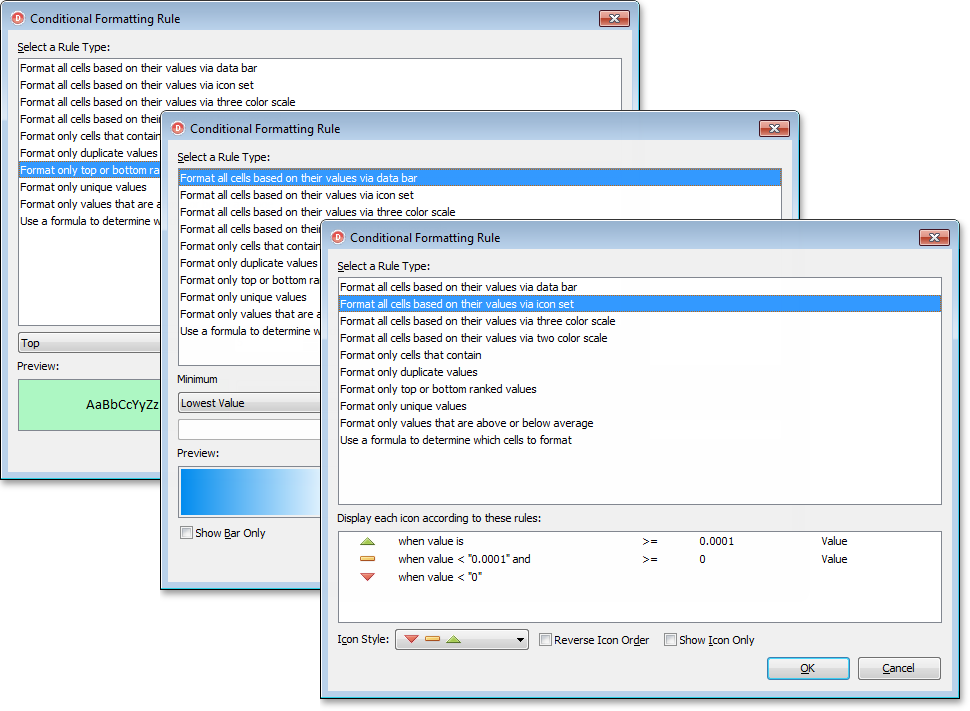ShowConditionalFormattingRuleEditDialog(IdxDialogOwner,TdxSpreadSheetCustomConditionalFormattingRule) Method
Invokes the Conditional Formatting Rule dialog for a control with support for conditional formatting.
Declaration
function ShowConditionalFormattingRuleEditDialog(AOwner: IdxDialogOwner; var ARule: TdxSpreadSheetCustomConditionalFormattingRule): Boolean;Parameters
| Name | Type | Description |
|---|---|---|
| AOwner | IdxDialogOwner | The target control with support for conditional formatting. The accepted control must implement IdxDialogOwner and IdxSpreadSheetConditionalFormatting interfaces; otherwise, the function call has no effect. |
| ARule | TdxSpreadSheetCustomConditionalFormattingRule | The target conditional formatting rule. If the invoked dialog creates a new conditional formatting rule, this parameter returns the created rule. |
Returns
| Type | Description |
|---|---|
| Boolean |
|
Remarks
Call the ShowConditionalFormattingRuleEditDialog function to invoke the dialog that allows users to edit an existing conditional formatting rule or create a new rule.

See Also